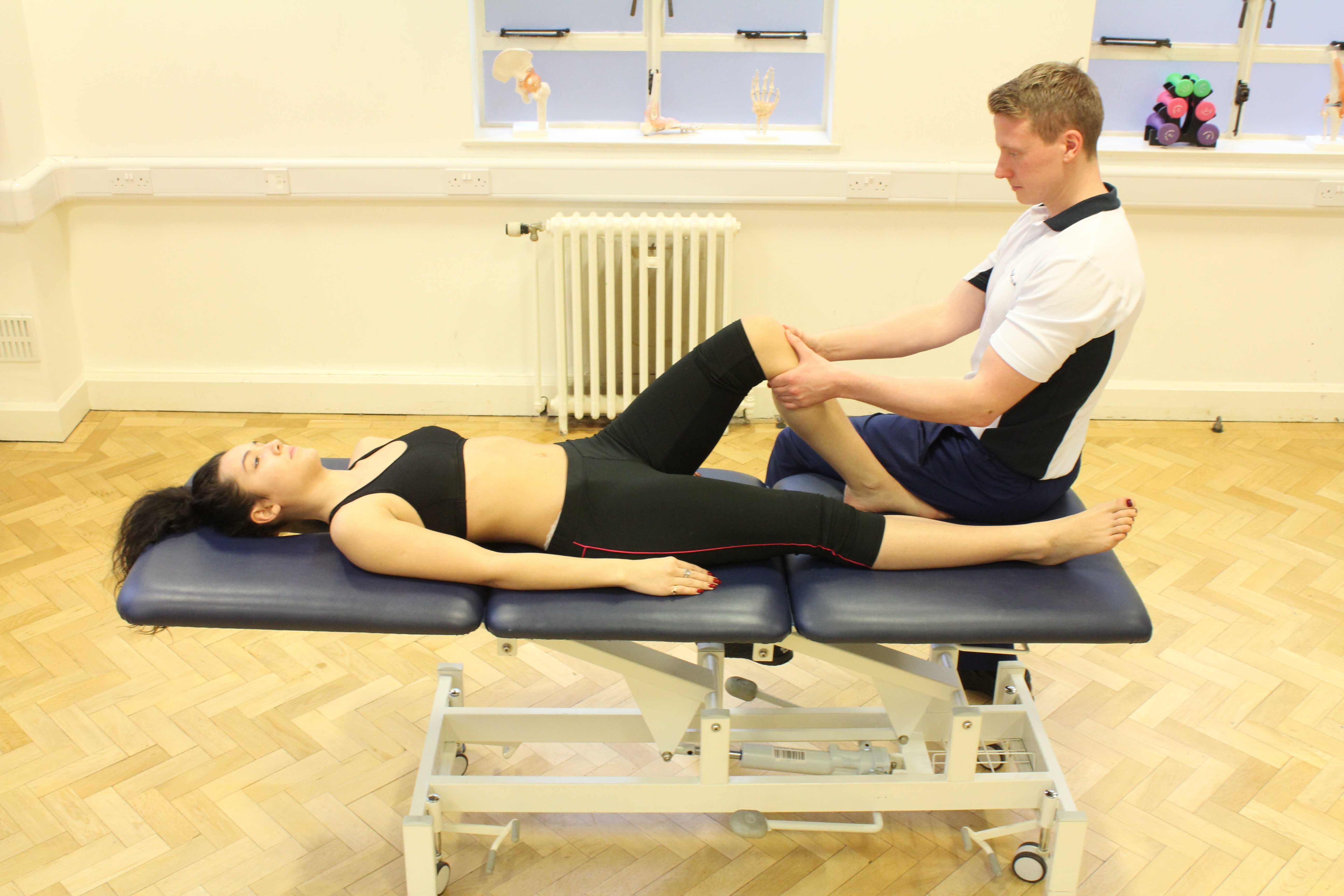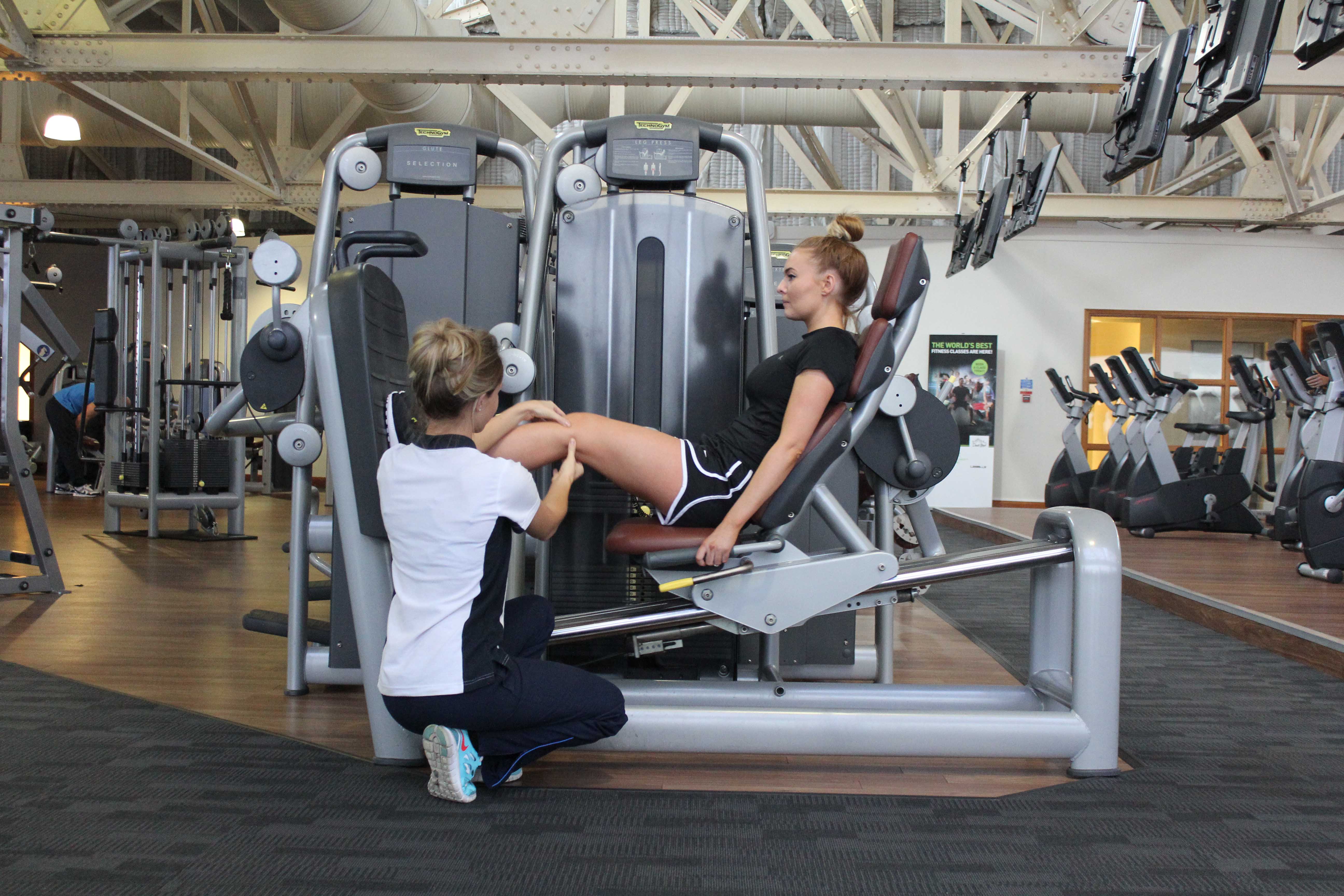What is gastrocnemius tendinopathy?
The gastrocnemius is the main calf muscle. It is located on the back of the lower leg. Gastrocnemius tendinopathy is inflammation of the gastrocnemius tendon where it originates from the back of the knee joint. Physiotherapy is an excellent treatment for a gastrocnemius tendinopathy.
How does gastrocnemius tendinopathy happen?
Gastrocnemius tendinopathy is caused by overuse of the gastrocnemius tendon. The gastrocnemius tendon transmits forces from the large gastrocnemius muscle to the thigh bone. Repetitive use of the gastrocnemius muscle and, therefore, the gastrocnemius tendon can cause microscopic tears within the tendon. The body commences an inflammatory response to repair the tears. The inflammation within the tendon is tendinopathy.
 Above: Therapist performing knee assessment
Above: Therapist performing knee assessmentWhat are the symptoms of gastrocnemius tendinopathy?
Gastrocnemius tendinopathy causes a gradual onset of pain behind the knee joint. You may also experience stiffness or tightness in the calf muscle and/or at the back of the knee joint. These initial symptoms are often ignored, as they can disappear quickly with moving the knee or applying heat to the back of it. However, if you continue to exercise, you could damage the tendon further, increasing the intensity and frequency of your pain.
Other symptoms may include:
What should I do if I have gastrocnemius tendinopathy?
If you suspect that you have gastrocnemius tendinopathy, you should arrange a physiotherapy assessment as soon as possible. In the meantime you can reduce the amount of inflammation around your gastrocnemius tendon by icing the back of your knee using a bag of frozen peas or crushed ice wrapped in a damp cloth for 15-20 minutes every 1-2 hours.
What shouldn’t I do if I have gastrocnemius tendinopathy?
If you suspect that you have gastrocnemius tendinopathy, you should not ignore your problem. Initially, your pain may get better as you exercise; however, it is likely that continuing with exercise will interfere with the healing process and cause further damage. This could delay your recovery.
 Above: Progressive knee strengthening exercises supervised by therapist
Above: Progressive knee strengthening exercises supervised by therapistCould there be any long-term effects from gastrocnemius tendinopathy?
If it is properly diagnosed and treated, gastrocnemius tendinopathy does not produce any long-term effects.
Physiotherapy treatment for gastrocnemius tendinopathy.
Physiotherapy is important in the treatment of gastrocnemius tendinopathy. Initially, your physiotherapist can diagnose your injury and establish its severity. Your physiotherapist will then be able to develop a treatment plan specifically for you. Treatment may involve: To arrange a physiotherapy assessment call Physio.co.uk on 0330 088 7800 or book online.

 0330 088 7800
0330 088 7800


































